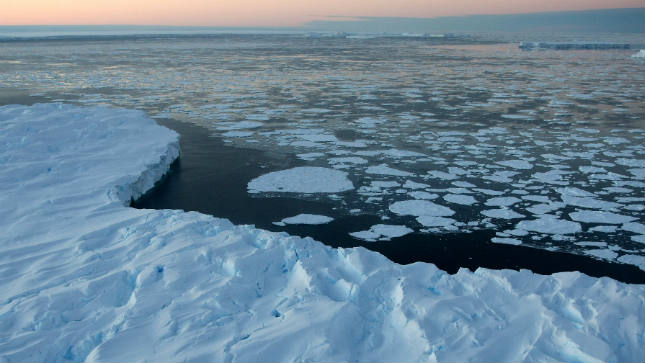Scientists failed for decades to communicate the coming risks of rapid sea-level rise to policymakers and the public, a new study has found. That has created a climate catch-22 in which scientists …

Seems like a ridiculous article. To attempt to put the blame for lack of action on climate change on science communicators for not expressing enough certainty is absurd. Policymakers have known damn well for decades the potential implications… they are not ignoring climate action due to the uncertainty, but for all kinds of other political reasons.

My thoughts exactly. Seems like the authors don’t want to confront the idea that policymakers simply don’t give a fuck about the climate, so the explanation has to be that scientists failed to communicate.

I mean, it’s The Hill. They might “lean left” in their bias, but they’re basically a mouthpiece for congress. of course they’re not going to say “we voted against climate protections and resilience because we’re receiving massive donations from people that would be hurt by those changes.” (or, in the case of Manchin, is in fact a part owner of an oil company… one that just got it’s pipeline project rammed through despite pushback…)

Oh I meant the original authors of the paper they reference, but it does apply to The Hill too probably

@RyanHeffronPhoto Yeah, it seems like scientists could literally be setting themselves on fire trying to get peoples’ attention and policymakers would not act. This isn’t a scicomm issue, this is a political problem - politicians don’t want to solve problems that will cause short-term pain for long-term (generational) gain. There’s no motivation to solve problems that won’t resolve before the next election cycle.

Policy makers have not acted…
Scientists failed for decades to communicate the coming risks of rapid sea-level rise to policymakers and the public.
Have they? Or have the marketing and PR departments of oil and gas companies paid for endless propaganda and lobbying to prevent change?
Did scientists fail to communicate the link between cigarettes and lung cancer or was it the propaganda and lobbying of tobacco companies that convinced the government to not do anything about it for decades?

Scientists have this nasty habit of being honest about degrees of confidence, which leaves politicians enough room for mental gymnastics, and allows people with direct conflicts of interest to sound totally confident in their denials.
When confronted with two people, one saying “we could see global temperatures rise anywhere from half a degree C to 2.5 degrees C, and this could lead to sea levels rising 30 to 60 cm, and may increase the frequency and strengths of hurricanes, el ninos, and la ninas” and the other saying “I promise you, none of that will happen, they’re just being alarmists. Also, those numbers seem awfully small to be concerned about anyway, don’t they?”, well…
I see this at work all of the time. I’ve had to change how I report stuff because I used to have conversations like
Management: “Hey, Kichae, we released an A/B test for a new update. Did it increase playtime?”
Me: “The model shows playtime increases of between 20s to 3 minutes per week.”
Management: “Guess not!”
Now I strip the uncertainty ranges, and I focus on reporting for individual cohorts, so people can see that some players went from playing 3 minutes to 4 minutes, and some players went from playing 3 hours to 4 hours. It’s resulted in a lot more work for me, but at the same time, people are less likely to write off meaningful results.

That’s really odd, scientists successfully communicated the situation to me for decades. Maybe the article’s author just didn’t bother to listen and/or deliberately ignored the message – just like the lobbyists who worked hard to bury the importance – because that’s how things always go.
You can lead the horse to water but you can’t make it drink, and now here we all are.


